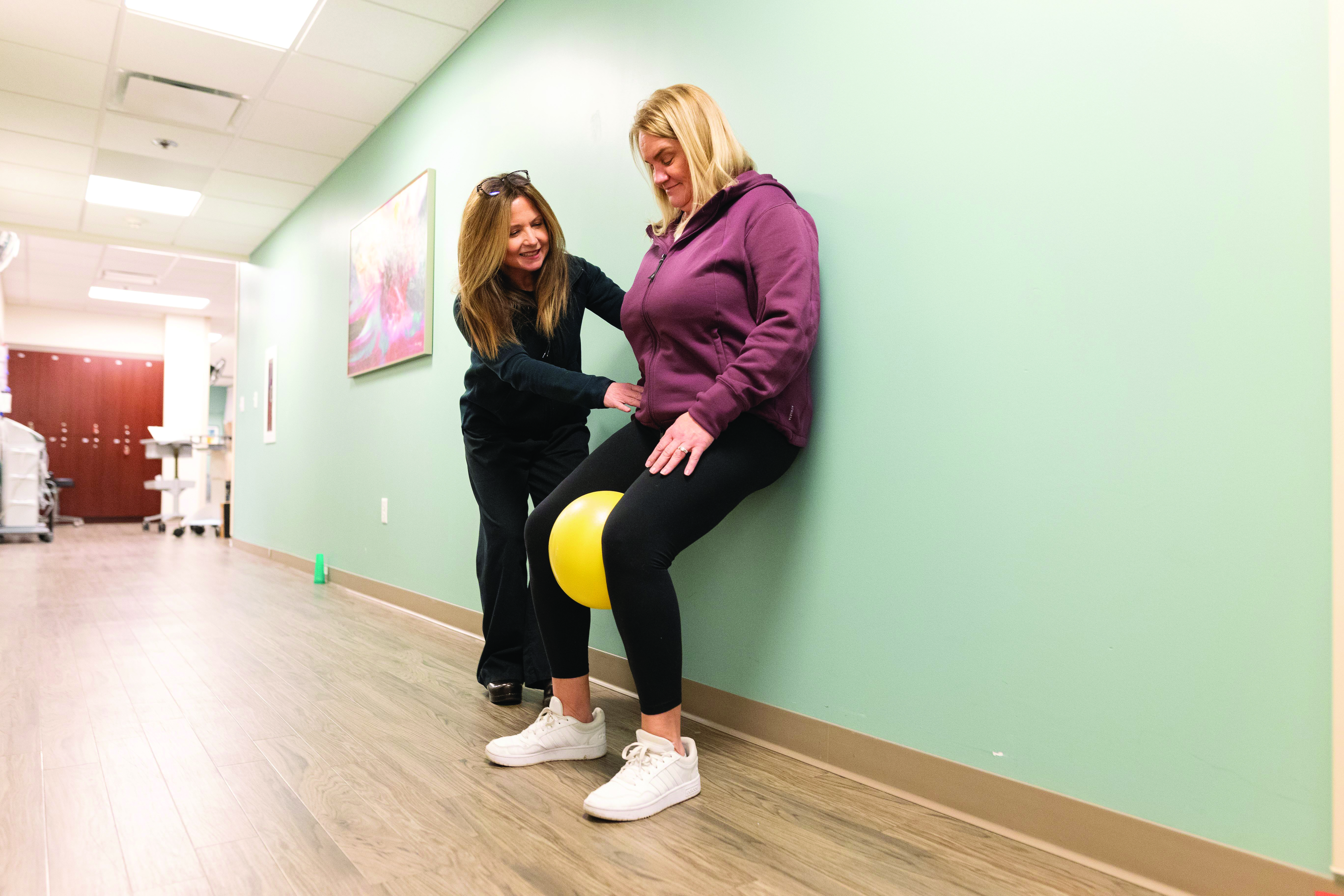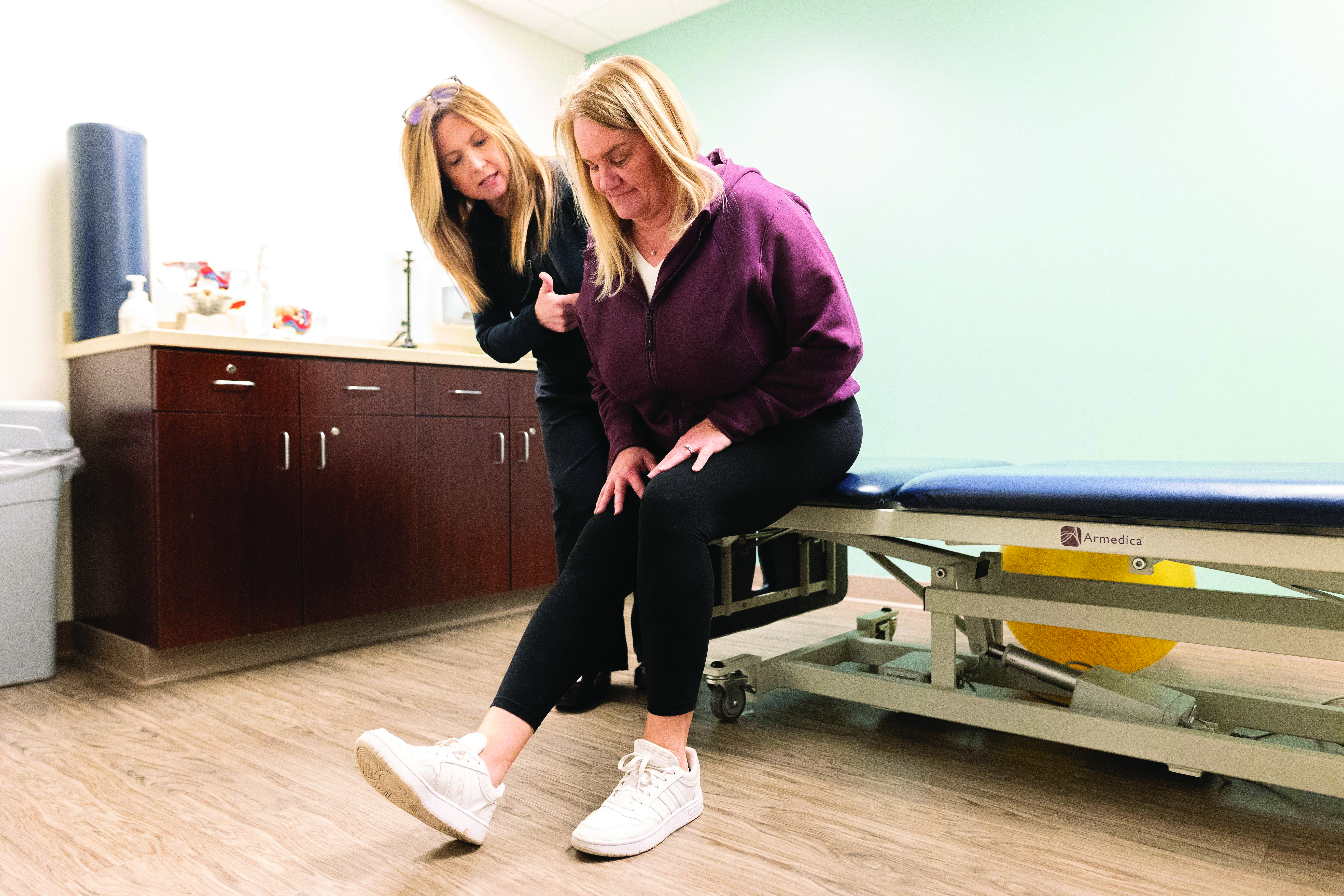It's the problem no one wants to talk about — or the one you might not even know you have. Pelvic floor disorders can occur when the muscles and tissue that help support your bladder, bowel and reproductive organs weaken, tighten or are injured. This can cause issues with incontinence and sexual health.
 “Muscles can be weakened by aging, pregnancy, childbirth, cancer treatments, obesity and straining as with chronic constipation, among other issues,” says Shelley Cathey, a physical therapist at Missouri Baptist Medical Center (MoBap).
“Muscles can be weakened by aging, pregnancy, childbirth, cancer treatments, obesity and straining as with chronic constipation, among other issues,” says Shelley Cathey, a physical therapist at Missouri Baptist Medical Center (MoBap).
“These problems can have a huge impact on someone’s quality of life.” Physical therapy, however, can help improve muscle strength and coordination, as well as other issues caused by pelvic floor disorders.
What to Expect
“During a patient's first visit we ask questions about their bladder and bowel,” says Shelley. “We are sensitive that patients may feel uncomfortable when talking about pelvic floor problems.
Listening to their concerns allows us to better understand their individual needs and explain how pelvic floor rehabilitation can help.”
Lauren Fyalka, a MoBap physical therapist, explains that following the initial evaluation, physical therapy is customized to the specific needs of the patient. Having a physical therapy assessment is important for identifying the right exercises to help with muscle strengthening and endurance and coordination of the pelvic muscles.
“In some cases, physical therapy is used to help relax and lengthen the muscles to decrease pelvic pain,” Lauren says.
Lauren says.
Other treatments may also include bladder retraining to help increase the amount the bladder will hold and help with urinary urgency and frequency, electrical stimulation that uses technology to stimulate pelvic floor muscles or biofeedback that uses a device to capture pelvic floor muscle movements with realtime feedback on progress.
Lauren adds that having a physical therapist involved helps to make sure that the right exercises are done to treat the problem.
Helping Prevent Pelvic Floor Pain
Both Lauren and Shelley agree that prevention is an important tool, as well as watching out for symptoms that signal there is a problem. “Maintaining fitness with activities like yoga, core training and cardio can help make a difference in keeping pelvic muscles strong,” says Shelley.
Pelvic Floor Therapy, Just for You
These signs may signal a potential problem:
- Vaginal, rectal, penile pain of any kind
- Slower to start urine stream
- Incomplete emptying of bladder and/or bowel
- Pain with pelvic exam, tampon use or intercourse
If you are experiencing these symptoms or any pelvic pain, our pelvic floor specialists are here to help create your individualized care plan. You deserve to have the confidence and freedom to enjoy your life.